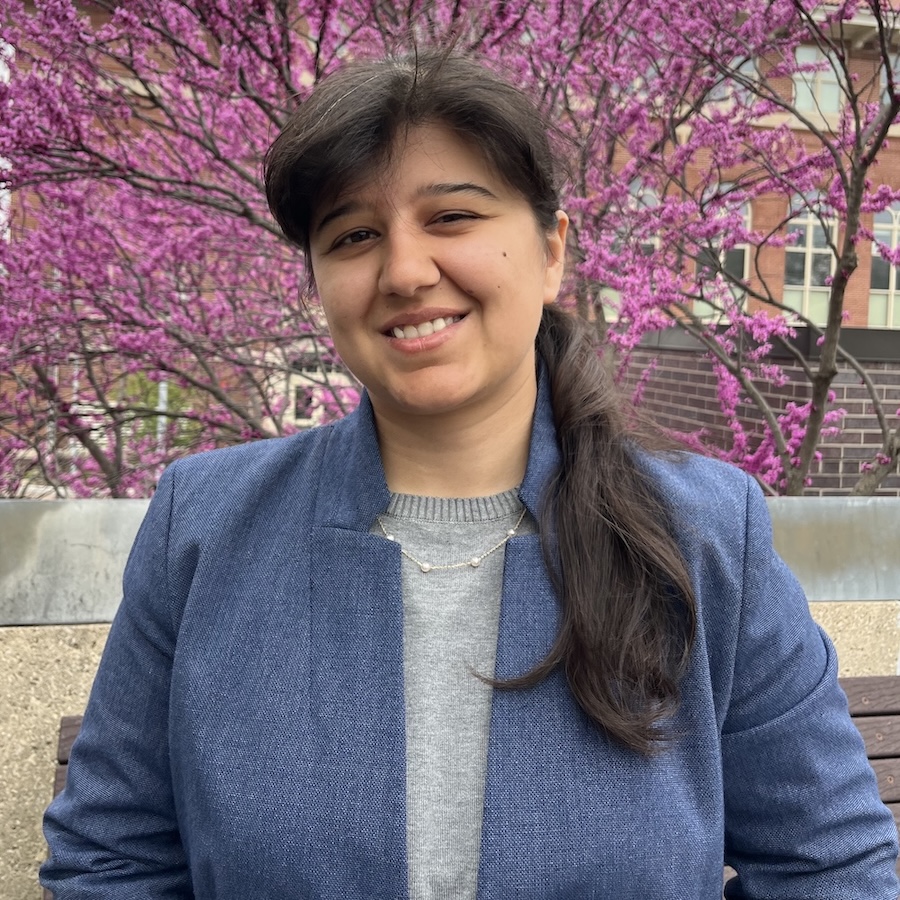Nilufar Bobojonova

Nilufar Bobojonova
What brought you to UNI?
I came to the UNI through Fulbright Scholarship funded by U.S. Department of State’s Bureau of Educational and Cultural to pursue a Master's in Women's and Gender Studies. My goal was to deepen my understanding of gender-based violence and develop knowledge and skills needed to contribute more effectively to social change, especially for marginalized groups in my home country, Tajikistan.
Before coming to the States, I earned my Bachelor's degree in Linguistics with a focus on English-Tajik translation.
What did you enjoy most about attending UNI?
What I enjoyed most about attending UNI was the sense of community. I built wonderful friendships and felt truly welcomed, especially thanks to the continuous support from the International Engagement Office, which helped me feel at home as an international student. I also appreciated the opportunity to meet students from around the world and learn about diverse cultures. UNI’s campus life was vibrant, with many student activities and events, and I especially loved the beautiful, green campus filled with trees and plants. Additionally, the support I received from the Rod Library librarians was invaluable to my graduate research and projects.
How did you become interested in your program?
I worked at various community organizations such as non-governmental organizations run by my father that advocated for the rights of people with disabilities in my hometown, Bokhtar. Through this work, I witnessed firsthand how women with disabilities often face disproportionately high rates of domestic violence, sexual assault, and harassment. These experiences motivated me to continue working in community development with a specific focus on gender equity and the rights of women with disabilities.
How have you been involved outside of the classroom?
As a member of the Fulbright Association Iowa Chapter, I participated in various events that foster cultural exchange and global understanding. I also volunteered at the House of Hope, a local organization whose mission is to break the cycle of homelessness in the Cedar Valley through respect, support, and empowerment. In addition, I completed an internship at DC SAFE, the only 24/7 crisis intervention agency for domestic violence in Washington, DC, through the Edmund S. Muskie Professional Fellowship. This hands-on experience deepened my understanding of gender-based violence prevention. These opportunities have allowed me to connect with diverse communities, contribute to meaningful causes, and apply the knowledge gained in my WGS program to real-world contexts.
What professors have been most influential through your time here at UNI?
Several professors have had a profound impact on my academic and personal growth at UNI such as: Dr. Catherine Palczewski, Dr. W. Michael Fleming, Dr. Danielle McGeough, Cara Burnidge.I also greatly appreciated Alysa Mozak’s guidance and practical insights on violence prevention and advocacy.
Post-graduation plans?
I am currently applying for various positions in Tajikistan and am eager to begin the next chapter of my professional journey. I am particularly interested in working with NGO or international organizations that focus on gender equity, community development, or human rights. I’m excited to apply the knowledge and skills I gained through the Women’s and Gender Studies program at UNI to make a meaningful impact in my home country.
How did UNI prepare you for your post-graduation plans?
UNI has prepared me well for my post-graduation goals by equipping me with both theoretical knowledge and practical skills. Through the Women’s and Gender Studies program, I developed a strong understanding of gender justice, advocacy, and policy analysis. One of the most valuable aspects of my education was learning to apply an intersectional lens, examining how overlapping identities such as gender, disability, class, and ethnicity affect people’s lived experiences. This perspective is crucial for addressing systemic inequalities in my future work.
Additionally, my experiences with research, community outreach, and internships enhanced my critical thinking and cross-cultural competency, skills that will be essential in working back in Tajikistan.
What advice would you give to students currently looking into grad schools?
Take the time to research programs that align not only with your academic interests but also with your personal values and long-term goals. Reach out to current students or alumni to get a sense of the community and support systems available. For those considering the Women’s and Gender Studies, I highly recommend it for its supportive faculty and interdisciplinary approach. Be open to learning from diverse perspectives, and don’t hesitate to take advantage of research, internship, and community engagement opportunities, they will greatly enrich your experience and prepare you for meaningful work after graduation.
